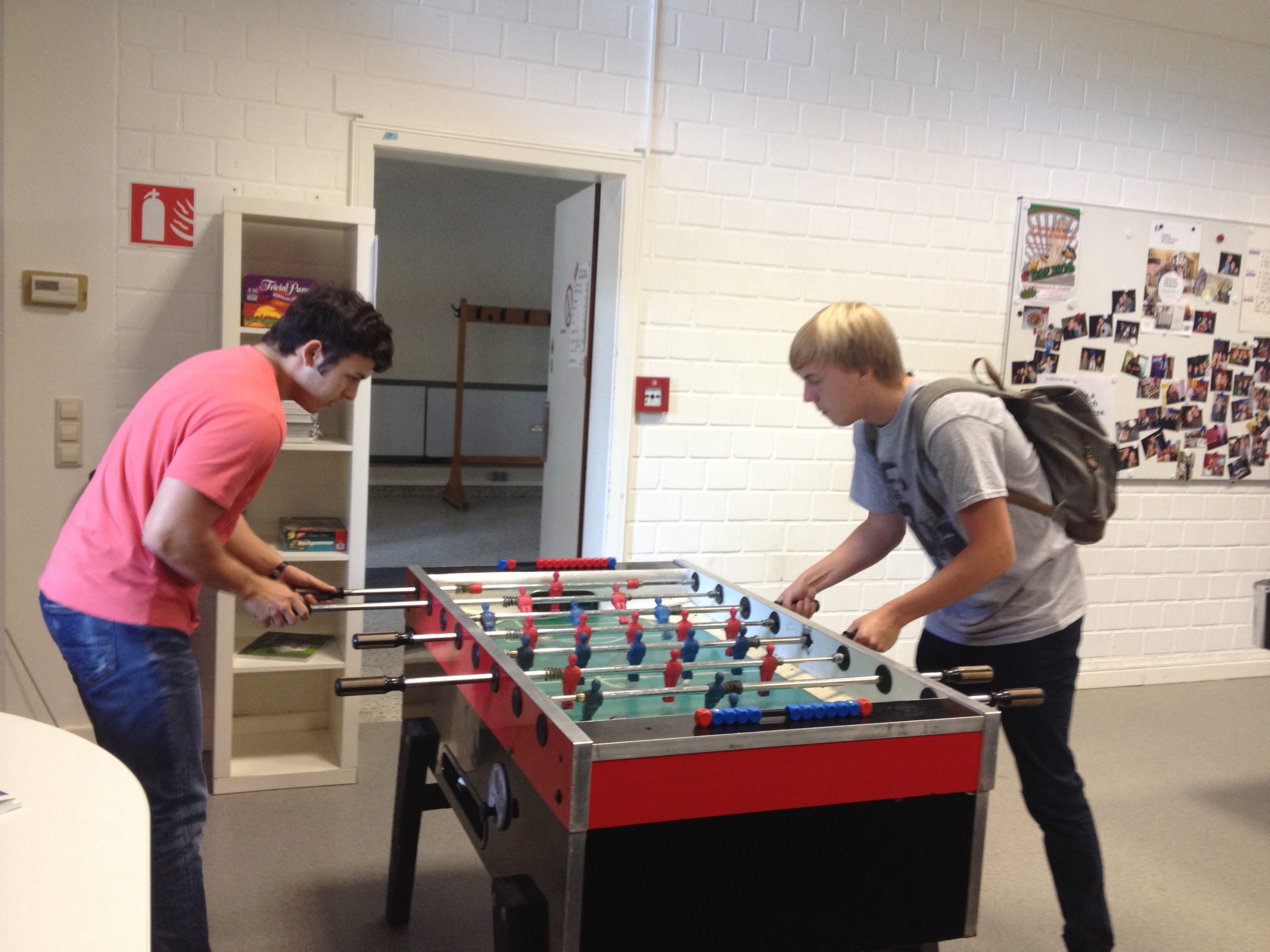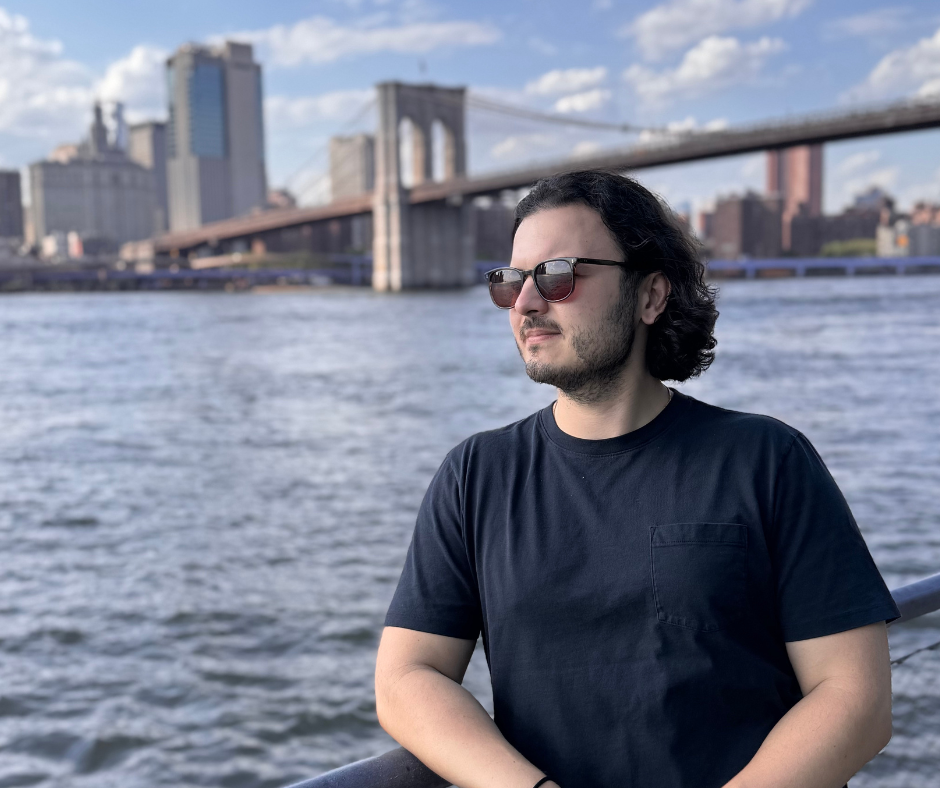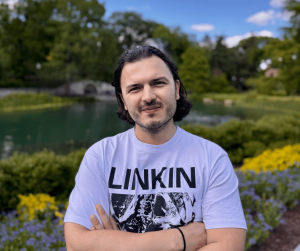Edvard Bakhitov is a graduate of the Master in Quantitative Economics and Finance (MQEF) at the University of Luxembourg, whose academic journey in Luxembourg began as an exchange student. What started as a brief challenge to step outside his comfort zone ultimately shaped the direction of his career.
After completing this Master’s, Edvard was encouraged by his professors to pursue a PhD in Economics at the University of Pennsylvania (UPenn) – an Ivy League university renowned for its rigorous economics programme, where acceptance rates fall below 5%. Since graduating, he has built a successful career in tech, having worked as a Research Scientist at Meta.
We spoke with Edvard to learn how the MQEF’s challenging curriculum and the mentorship he received in Luxembourg prepared him for the intense doctoral studies and the demands of both academia and the tech sector.
Edvard, what motivated you to pursue a Master in Quantitative Economics and Finance (MQEF) at the University of Luxembourg?
To be honest, it was quite an unexpected decision. I initially joined the MQEF program as an exchange student. At the time, I was studying at the Higher School of Economics in Russia while also working part-time as an analyst at a major telecom company. Things were going well, but I felt like I needed a new challenge — something to shake up my routine and push me out of my comfort zone.
I started looking into exchange opportunities. Many of the programs at European universities like the Sorbonne or Humboldt required an English proficiency certificate, but I had decided to apply quite late and didn’t have time to take the necessary tests. Luckily, HSE had just opened a new exchange program with the University of Luxembourg that didn’t require such a certificate — so I went for it.
I had no idea at the time that this decision would become such a turning point in my life. The experience broadened my horizons, deepened my interest in economics and quantitative methods, and ultimately shaped the direction of my career.
What were some of the most impactful courses and/or professors during your Master’s degree here?
Two courses stand out as particularly impactful: Quantitative Macroeconomics with Prof. Koulovatianos and Microeconometrics with Prof. Tripathi. Both had a direct and lasting impact on my academic path.
Professor Koulovatianos’s course placed strong emphasis on the fundamentals of dynamic programming and heterogeneous agent models — topics that proved invaluable when I started the core macroeconomics sequence at Penn. I found myself much better prepared thanks to that solid foundation.
Similarly, Professor Tripathi’s Microeconometrics class provided me with a comprehensive understanding of econometric methods. In fact, when I later took econometrics courses at Penn, I realized that I had already covered much of the core material during his class. More importantly, his teaching sparked my deeper interest in econometrics, which ultimately shaped both my PhD research and my career focus in industry.
Your Master’s thesis was recognized with the “Best Master Thesis in Economics” award. Could you tell us more about the topic you explored and what made it stand out?
Sure! My Master’s thesis explored a topic that, at the time, sparked a lot of discussion both in academia and in the media — the so-called “stock-bond disconnect.” In simple terms, the puzzle was this: global stock indices were reaching new highs, while interest rates remained at historically low levels. Normally, you’d expect these two to move more in sync.
I first came across this question in an article by Kenneth Rogoff, who suggested that public concern about the risk of future economic catastrophes — even years after the financial crisis — might be behind this disconnect. That idea really intrigued me, especially after taking a class in asset pricing where we studied models that could potentially explain such behavior.
In my thesis, I set out to formalize Rogoff’s intuition using modern asset pricing theory. I combined ideas from the variable-disaster risk literature — particularly the model by Jessica Wachter — with tools from long-run risk modeling (such as Bansal & Yaron’s framework). What made the thesis stand out, I believe, was that I managed to explain the observed market behavior using a fully rational model — no need for ad hoc assumptions or behavioral explanations. On the technical side, I implemented the model using advanced numerical methods (projection techniques with Chebyshev polynomials), which is something usually seen in more advanced PhD-level work.
Overall, the thesis provided a clean and theoretically grounded explanation for a phenomenon that many considered puzzling, and I think that combination of relevance, originality, and rigor is what earned it the award.
What aspects of the Master curriculum do you find yourself using most in your research and professional work today?
I would say microeconometrics has been the most valuable part of the curriculum for me. Both my PhD and my current industry work revolve around econometrics, statistics, and machine learning, so having a solid grounding in these methods is essential.
More broadly, I find that the linear algebra fundamentals we covered in the microeconometrics class show up constantly — whether it’s in basic linear regressions or in more advanced ML and AI models where linear approximations are used extensively. That foundation has really proven to be universally applicable across different types of modeling work.
How did your studies at the University of Luxembourg prepare you for your PhD at the University of Pennsylvania and your career in research and industry?
The MQEF research track turned out to be an excellent preparation for both my PhD at Penn and my later work in industry. The program is modeled after the first-year coursework of top US PhD programs, so from day one, you get used to the level of rigor and intensity. It teaches you that real understanding comes not just from lectures, but from hands-on work — through challenging assignments that force you to really engage with the material.
I still vividly remember our quantitative macroeconomics homework — it was incredibly demanding. We would spend entire days at the university, and nights in the dorms, working through complex problems. But that experience built a muscle that’s absolutely critical in a research-heavy career: persistence. Whether you’re in academia or in industry, you will inevitably encounter situations where things don’t work the way you expect. Sometimes it takes days of digging to figure out why — but ultimately, you need to find a solution that works. Learning how to navigate that process and keep going when things get tough is one of the most valuable lessons I took from my time in Luxembourg — and it continues to serve me to this day.

Was there a particular moment or experience during your time in Luxembourg that shaped your decision to pursue a PhD?
There wasn’t really one single turning point — it was more of a natural progression, driven by curiosity and the desire to challenge myself. But the biggest influence definitely came from my supervisors in Luxembourg — professors Christos Koulovatianos and Gautam Tripathi.
They played a key role in shaping my thinking and encouraging me to explore research more seriously. Beyond teaching technical skills, they helped me gain the confidence to pursue this path. Their mentorship made the idea of doing a PhD feel both exciting and achievable.
During that time, I started reading more academic papers, attending seminars, and for the first time, really considering an academic career. I realized that I didn’t just want to apply existing tools — I wanted to contribute to the development of new methods and ideas. That’s what ultimately motivated me to apply for a PhD.
What do you value most from your time at the University of Luxembourg – academically, professionally or personally?
My time at the University of Luxembourg was one of the most impactful and rewarding experiences of my life. I’m deeply grateful to my professors and friends who made that year so meaningful.
When I first arrived in Luxembourg, pursuing a PhD wasn’t even on my radar. I simply wanted to spend a year abroad, experience something new, and then return home to Russia. But that year turned out to be a real turning point: it sparked my interest in academia and research, and it shaped the path I would later take. The mentorship and encouragement I received from my professors, as well as the inspiring community of peers I met, played a huge role in that transformation. To this day, I keep in touch with my advisors and truly value those relationships.
On a personal level, living in Luxembourg was a fantastic experience. Being in the heart of Europe allowed us to travel a lot during long weekends and breaks — we explored Belgium, France, the Netherlands, Germany, and more. Those moments of discovery, along with the friendships I built, made the experience even more special. It’s a time I look back on with great fondness.
Did the Faculty provide you with any support during your application to the PhD programme? If so, in what way?
Absolutely — I received a lot of support from the Faculty. Christos and Gautam were amazing mentors throughout the whole process. Beyond writing truly thoughtful recommendation letters, they really took the time to help me think through my PhD applications. We discussed which programs could be a good fit, how to build a balanced list of schools, and how to approach departments strategically. They also gave me great feedback on my supporting documents — cover letters, research statements — and helped me frame my story in a way that felt authentic and clear. Having their guidance really made the process much less daunting, and I’m very grateful for that.
You’ve worked both in academia and industry, including at Meta as a Research Scientist. Could you tell more what prompted the transition from academia to the tech sector?
My decision to move from academia to industry was largely driven by the desire to work on problems with tangible real-world impact — and to be able to do so using large-scale data. In academia, especially in economics, access to high-quality, detailed data is often a major constraint. In tech, companies like Meta offer unparalleled access to detailed behavioral data, allowing you to develop and rigorously test new methods in complex, real-time environments.
Another key factor was the interdisciplinary nature of the work. In academia, you’re often confined to the boundaries of your field — career progression depends heavily on publications in specialized journals, and venturing outside your discipline is not always encouraged. In industry, building great products requires collaboration across machine learning, engineering, economics, and experimental design — and that constant cross-pollination makes the work both exciting and intellectually rewarding.


How would you describe the differences between being a researcher in an academic environment vs in a corporate setting like Meta?
The biggest difference is really in the goal-setting. In academia, the main objective is to publish: your work must be theoretically sound, novel, and recognized by the academic community. That typically means spending a long time refining a single project. In industry — for example, at Meta — the focus shifts towards speed and practical impact: developing solutions that can be implemented in products and start delivering value quickly.
Of course, quality and depth remain important, but scalability, computational efficiency, and real-world integration become the top priorities. You also get the opportunity to test ideas rapidly, see the results reflected in products, and move on to the next challenge. I find this dynamic very motivating — it creates a constant sense of progress.
At the same time, we clearly see how the boundary between academic and industry research is blurring, especially in fields like machine learning and AI. Industry has become a major driver of theoretical innovation. Researchers from big tech companies regularly publish at top conferences like NeurIPS, ICML, and ICLR — not only on applied work but also on fundamental advances that deepen our understanding of architectures and the limits of these models.
What was the most interesting research project you worked on during your time at Meta?
I’d highlight a series of projects we did around bipartite experimentation, where interactions between different types of users — for example, buyers and sellers in a marketplace — can create biases in estimation. This is a very relevant and challenging problem for many digital platforms.
We worked on several fronts: we developed a covariate-adjusted estimator to improve estimation accuracy, designed a more scalable and robust variance estimation algorithm, and most ambitiously, tackled cases where the graph of interactions itself changes in response to treatment. In other words, when you introduce a new feature or change, it can alter how users connect and interact — and that in turn affects the experiment’s outcome. We proposed a new set of identifying assumptions and a scalable method to handle this complex situation.
This line of work resulted in a series of papers that we presented at the Conference on Digital Experimentation at MIT, and some of them we’re now preparing for academic publication. It was a very exciting opportunity to push the boundaries of experimentation methodology and tackle problems that have a lot of real-world relevance.

What advice would you give to current students of the MQEF who are considering pursuing a PhD and/or a career in tech?
If you’re considering a PhD, the most important thing to understand is that it’s not a sprint — it’s a marathon. Success comes down to consistency and perseverance. No matter how brilliant your ideas are, you’ll ultimately be judged by the quality of the papers you produce. And getting from an idea to a publishable paper is rarely a straight path — things will often not work as expected. It takes tenacity and patience to navigate the ups and downs and to bring a project to a high-quality conclusion. So, be prepared to dedicate significant time to your research — but also make sure to maintain balance. In top US programs, students often work long hours, but burning out is counterproductive. Sustained, thoughtful work always beats unsustainable intensity.
If you’re leaning toward a career in tech, my advice is to focus on strengthening your programming skills. In the end, even the best ideas need to be implemented — and while engineers may handle the final production version, you’ll be expected to deliver a high-quality, reproducible prototype and to collaborate closely on integration. It really helps to understand basic algorithms, computational and time complexity, and object-oriented programming. I’d also suggest becoming comfortable with machine learning tools and frameworks like scikit-learn — this will give you a practical edge and make you a stronger contributor in tech teams.
Finally, what’s next for you?
I plan to continue doing research in industry — I really enjoy this work and find it very rewarding. That said, I do hope that at some point I can return to academia in some capacity, perhaps as a professor of practice or an adjunct professor.
I’m very passionate about the idea of sharing the knowledge and experience I’ve gained in industry — especially in areas like data analysis, causal inference, machine learning, and AI. I believe practice-oriented courses are a vital part of modern education. They help students not only learn the material, but also understand how these methods work in real-world applications, with all the practical constraints and nuances that come with them. If I can contribute to bridging that gap between theory and practice, I would consider it a very meaningful next step.
